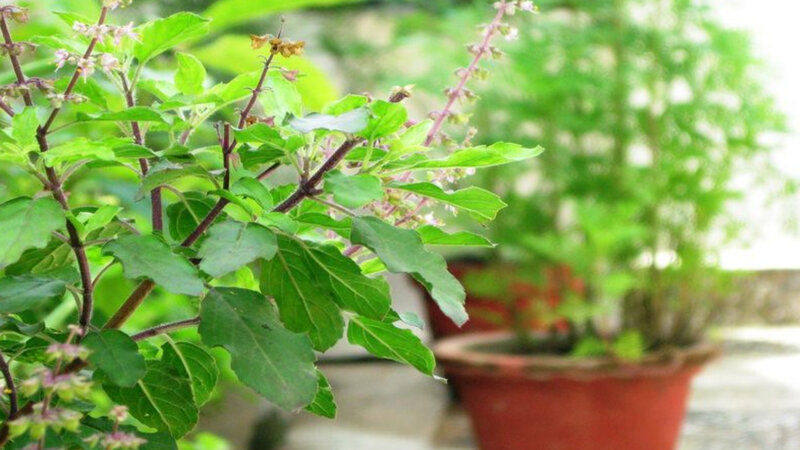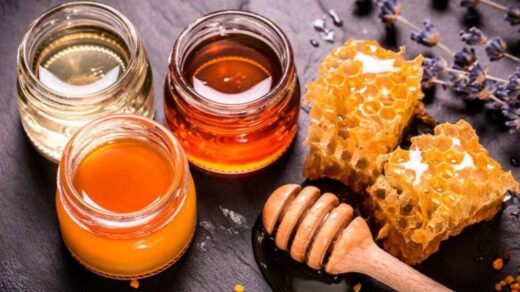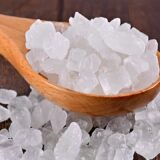Tulsi Leaves and Its Health Benefits: Nurturing Well Being Naturally
Tulsi, also known as Holy Basil, holds a significant place in Indian culture and traditions. It is deeply revered for its spiritual and medicinal properties, often regarded as the “Queen of Herbs.” The word “Tulsi” translates to “the incomparable one” in Sanskrit, highlighting its unique and unmatched qualities.
This sacred plant is native to the Indian subcontinent and is cultivated in many households for its auspicious nature. Tulsi is often found in courtyards or temples, where it is lovingly nurtured and worshipped. It symbolizes purity, devotion, and divine protection.
In Ayurveda, Tulsi is considered one of the most important herbs due to its holistic healing properties. Its rich heritage dates back thousands of years, where it has been used as a natural remedy for various ailments and as a tonic to promote overall well-being.
Tulsi plants are characterized by their fragrant leaves, which possess a captivating aroma. The leaves are oval-shaped, with serrated edges and a vibrant green color, making them visually appealing. The plant itself can grow up to three feet tall and bears small purple or white flowers.
Apart from its religious and medicinal significance, Tulsi also plays a crucial role in culinary practices. Its leaves are commonly used in Indian cuisine to enhance the flavor of dishes, imparting a subtle peppery and slightly sweet taste.
Nutritional Profile of Tulsi
The nutritional profile of Tulsi leaves is indeed impressive, as they are packed with a wide array of essential nutrients that are beneficial for overall health and well-being. Tulsi leaves are rich in essential nutrients, including:
- Vitamin A: Supports vision, immune system, and skin health.
- Vitamin C: Powerful antioxidant, that strengthens the immune system.
- Vitamin K: Important for blood clotting and bone health.
- Calcium: Essential for strong bones, teeth, and muscle function.
- Magnesium: Involved in energy production, muscle, and nerve function.
- Iron: Crucial for red blood cell formation and oxygen transport.
Tulsi leaves contain phytochemicals, such as:
- Eugenol: Exhibits antioxidant, anti-inflammatory, and antimicrobial properties.
- Rosmarinic acid: Possesses antioxidant and anti-inflammatory effects.
- Apigenin: Shows antioxidant and anti-inflammatory properties, and may have potential anti-cancer effects.
These nutrients and phytochemicals contribute to the medicinal effects of Tulsi, including its antioxidant, anti-inflammatory, and antimicrobial properties. Including Tulsi leaves in your diet can provide a nutritional boost and promote overall health and well-being.
Tulsi Leaves and Its Health Benefits
Tulsi, also known as Holy Basil, is a revered plant in Ayurveda, the ancient Indian system of medicine. This aromatic herb is highly regarded for its numerous health benefits and has been used for centuries to promote well-being. In this article, we will explore the medicinal properties of the Tulsi plant and how it can contribute to a healthier lifestyle.
1. Antioxidant Properties
Tulsi possesses potent antioxidant properties that help protect the body against oxidative stress caused by harmful free radicals. These antioxidants scavenge free radicals, reducing the risk of chronic diseases and promoting overall health.
2. Boosts Immunity
The immune-boosting properties of Tulsi are well-documented. Regular consumption of Tulsi leaves or its extracts can strengthen the immune system, making the body more resilient against infections, viruses, and bacteria.
3. Respiratory Health
Tulsi is often used to alleviate respiratory ailments such as coughs, colds, and asthma. Its expectorant properties help in loosening phlegm and clearing congestion, providing relief from respiratory discomfort.
4. Stress Relief and Mental Well-being
In Ayurveda, Tulsi is considered an adaptogen, which means it helps the body cope with stress and promotes mental well-being. The natural compounds in Tulsi leaves have a calming effect on the nervous system, reducing anxiety and promoting relaxation.
5. Supports Digestive Health
Tulsi aids in maintaining a healthy digestive system. It can help alleviate various digestive issues like bloating, indigestion, and stomach cramps. The essential oils present in Tulsi leaves possess carminative properties, aiding in digestion and reducing gastrointestinal discomfort.
6. Anti-inflammatory Effects
Tulsi exhibits anti-inflammatory properties, making it beneficial for managing inflammatory conditions like arthritis. It can help reduce inflammation and swelling, providing relief from pain and improving joint mobility.
7. Oral Health Benefits
The antibacterial and antimicrobial properties of Tulsi make it an excellent natural remedy for oral health. Regular use of Tulsi mouthwash or chewing Tulsi leaves can help combat dental issues like gum infections, bad breath, and plaque formation.
8. Skin and Hair Care
Tulsi’s antibacterial and antifungal properties extend to skin and hair care. Applying Tulsi paste or using Tulsi-infused products can help treat acne, promote a clear complexion, and nourish the scalp, preventing dandruff and hair fall.
9. Management of Diabetes
Research suggests that Tulsi may play a role in managing diabetes. It helps regulate blood sugar levels by increasing insulin secretion and improving insulin sensitivity, thereby aiding in the management of this chronic condition.
10. Cardiovascular Health
Regular consumption of Tulsi has been associated with improved cardiovascular health. It helps regulate blood pressure, reduce cholesterol levels, and prevent the formation of blood clots, lowering the risk of heart diseases.
11. Enhances Cognitive Function
Tulsi is believed to enhance cognitive function and memory. The antioxidants present in Tulsi leaves protect the brain from oxidative stress, reducing age-related cognitive decline and promoting better brain health.
12. Detoxification and Liver Health
Tulsi has detoxifying properties that help eliminate toxins from the body, particularly in the liver. It supports liver function and aids in the proper elimination of waste, promoting a healthy liver and overall detoxification.
Conclusion
The Tulsi plant, with its myriad of medicinal benefits, has been revered in Ayurveda for centuries. From boosting immunity to promoting respiratory health, reducing stress to supporting digestion.
Besides this offering numerous other advantages, Tulsi is truly a remarkable herb. By incorporating Tulsi into our daily lives, we can harness its potential for improved well-being.
FAQs
1. Is Tulsi safe for consumption?
Yes, Tulsi is generally safe for consumption. However, it is recommended to consult a healthcare professional, especially if you have any specific health conditions or are taking medication.
2. How can I include Tulsi in my diet?
You can consume Tulsi leaves directly, make Tulsi tea, or add them to salads, soups, or other culinary preparations.
3. Can Tulsi help with anxiety and stress?
Yes, Tulsi has adaptogenic properties that can help reduce anxiety and stress levels. Incorporating Tulsi into your daily routine may promote a sense of calm and relaxation.
4. Are there any side effects of Tulsi?
While Tulsi is generally safe, some people may experience mild side effects like an upset stomach or allergic reactions. It is advisable to start with small quantities and observe how your body responds.
5. Where can I find Tulsi plants or Tulsi products?
Tulsi plants can be grown at home or purchased from nurseries. Tulsi products such as tea, extracts, and capsules are also available in health stores and online.
References
- Tulsi – Ocimum sanctum: A herb for all reasons(1)
- The Clinical Efficacy and Safety of Tulsi in Humans: A Systematic Review of the Literature(2)
- The Clinical Efficacy and Safety of Tulsi in Humans: A Systematic Review of the Literature(3)
Tulsi, the Holy Basil, offers a wide range of medicinal benefits. From its antioxidant and immune-boosting properties to its positive effects on respiratory health, stress relief, digestion, and more, Tulsi is a valuable herb for promoting overall well-being. Incorporate Tulsi into your lifestyle and experience the natural goodness it has to offer.

























Chewing tulasi leaves is not recommend as it contains mercury which cause harm to teeth. Tulasi is good for health but it should be swallowed and not chewed. It should not come in contact with saliva.